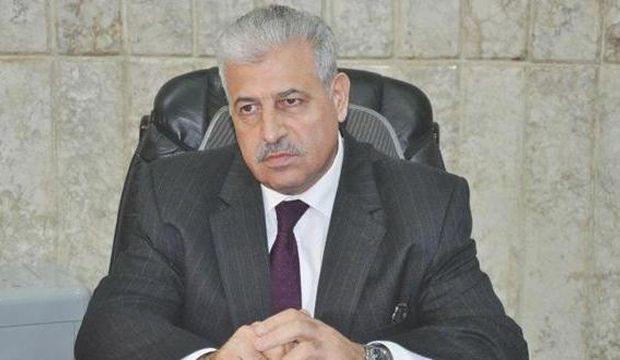Erbil, Asharq Al-Awsat—Local militias are forming to battle militants from the Islamic State of Iraq and Syria (ISIS) in and around Mosul, according to the region’s governor.
In a statement to Asharq Al-Awsat on Saturday, Nineveh provincial governor Atheel Al-Nujaifi said: “The formation of popular brigades to fight ISIS was completed in Mosul days ago,” adding that the new forces “are now carrying out a number of military operations against this organization.”
Nujaifi, who fled Mosul ahead of ISIS and its allies when they took the city at the beginning of June, said that the units were armed and supported by Mosul residents, but that their activities had not been publicized to ensure their safety.
He declined to give any details as to the strength of the new force, saying only that it was commanded by a former army officer, and that it was created “in revenge for ISIS blowing up shrines in Mosul and attacking the sanctities and beliefs of people.”
Nujaifi said the new units were not part of the existing Sunni insurgent groups which have expelled central government forces from much of northern and western Iraq.
The current uprising is widely held to be an outgrowth of protests from Iraq’s Sunni Arabs against what they say is sectarian oppression by the government of Shi’ite Prime Minister Nuri Al-Maliki.
Maliki is currently struggling to form a parliamentary coalition that can give him a third term in office after inconclusive parliamentary elections at the end of April.
Nujaifi said: “The other armed factions in Mosul are exposed to ISIS which can fight them whenever it wants. But these brigades are not known to ISIS. When they grow more powerful, these factions will catch up with them later.”
“The tribal revolutionaries cannot fight ISIS, but we can fight it. [But] driving it out of the city will take time,” he added.
Meanwhile, several Sunni tribal fighters continue to insist that they will not take up arms against ISIS, as such a move could strengthen Maliki’s position.
In a statement to Asharq Al-Awsat, the Iraqi Tribal Revolutionaries coalition spokesman Sheikh Raad Abdul Sattar Suleiman brushed aside the Nineveh governor’s announcement, saying it was “part of Maliki and Iran’s plan to strengthen the militias in Iraq.”
He said: “As tribal revolutionaries, we do not have the power to fight ISIS, because it has the upper hand on the ground and has military training and expertise.”
“ISIS has a [military] juggernaut and today controls the land with the tribal revolutionaries. Fighting ISIS now will give us a big problem and will lead to the outbreak of a street war. Meanwhile, we do not want to serve the agenda of Maliki and Iran because they both wanted this thing. They want us to take up arms and fight ISIS. We are not ready to engage in such a conflict,” he added.
Suleiman’s comments were echoed by the spokesman for the Sunni Popular Movement in Iraq, Mohamed Taha Al-Hamdoun.
Hamdoun said his movement was in favor of joining forces to battle ISIS, but added: “We will not accept ISIS remaining in our provinces, but our battle with it is on hold now because the tribal revolutionaries cannot now open more than one front.”
“The factions’ vision now is to line up security forces from the citizens of these liberated provinces to assume control there and work to prevent the return of the sectarian Maliki army—or ISIS—to our cities,” he added.
Elsewhere, other groups and factions threatened ISIS with retribution for its activities in Mosul, where it has forced out thousands of members of the city’s Christian population.
A number of former Iraqi army officers involved in the “National Salvation Front,” a successor to the “Awakening” movement that fought Al-Qaeda, threatened on Saturday to take revenge on ISIS for its destruction of shrines in Mosul.
In a statement read out by its spokesman Col. Mazin Al-Samarrai during a news conference in Erbil, the front said: “The criminals who carried out these acts will not escape from accountability and punishment for their disgraceful actions.”
Meanwhile, a source inside Mosul who requested anonymity, told Asharq Al-Awsat the jihadist organization decided on Saturday to destroy another shrine in the city, after blowing up two holy shrines, including the tomb of the Prophet Jonah, on Thursday and Friday.
The same source also said that ISIS had started to enforce military conscription on the people of Mosul “including every single young man aged 17–37”.
“From every house where there is more than one young man, one [is supposed to] volunteer to fight alongside ISIS in Iraq and Syria. A group of those have already been sent to Syria to join the fighting there,” the source said.

